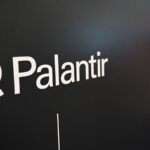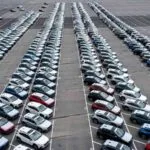The Los Angeles wildfires of January 2025 devastated Southern California, displacing over 80,000 residents and leaving thousands of homes in ashes. Among the affected were many celebrities whose public profiles brought attention to the human cost of the disaster. Yet, these personal accounts also highlighted the shared experience of trauma, the disparities in recovery, and the growing urgency to confront climate change, the driving force behind such increasingly frequent and destructive events.
The fires, accelerated by high winds and dry vegetation, swept through Pacific Palisades, Pasadena, Altadena, and Malibu, scorching over 27,000 acres and destroying more than 1,100 structures. For many, the fires were apocalyptic, transforming vibrant communities into charred landscapes overnight. By January 9, the death toll had risen to five, with thousands of families left grappling with profound loss.
Amid this devastation, the voices of celebrities emerged as a lens through which the broader community processed grief and resilience. Ricki Lake mourned the loss of her “heaven on earth,” while Paris Hilton described the surreal experience of watching her Malibu home burn on live television. Billy Crystal, reflecting on his home of 45 years, noted that while the structure was lost, the “beautiful memories” it held would endure.
Others shared their stories of survival and heartbreak. Cameron Mathison, Anna Faris, and Jennifer Grey all lost their homes, while Diane Warren found solace in the safety of her rescue animals. Spencer Pratt and Heidi Montag discovered a poignant symbol of love amid the ashes of their son’s bed frame. Meanwhile, Maria Shriver captured the collective grief of her Pacific Palisades community, describing the obliteration of neighborhoods, schools, and restaurants.
Social media played a pivotal role in amplifying these stories, fostering a sense of shared experience but also underscoring disparities. While celebrities used their platforms to rally support and express solidarity, their visibility often overshadowed the struggles of less privileged individuals. This raises a critical question: how can public narratives ensure equitable attention and resources for all affected, regardless of social or economic status?
@spencerpratt Nightmare came true
The 2025 Los Angeles wildfires are a stark reminder of the escalating threat posed by climate change. Rising temperatures and prolonged droughts have made fire seasons longer and more intense, turning communities into tinderboxes. The personal accounts of those impacted, including high-profile figures, underscore the urgency of addressing these challenges. Beyond rebuilding homes, the shared trauma of these events must galvanize efforts to adopt sustainable land management practices, invest in climate resilience, and mitigate the root causes of climate change.
As Los Angeles begins its recovery, the stories of loss and resilience serve as a testament to the strength of its communities. But the ultimate measure of progress will be how society uses these lessons to prevent future tragedies and build a more equitable and sustainable future. Will this disaster finally prompt the meaningful changes needed to confront the climate crisis, or will it fade into memory as another chapter in an ongoing cycle of destruction and recovery?











